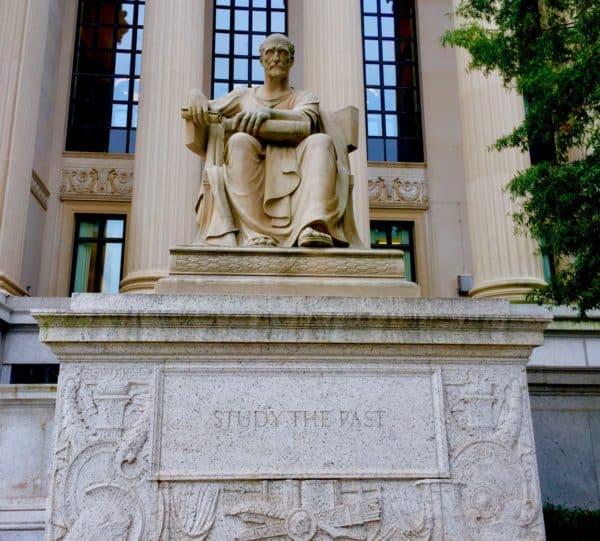This past February, RECoin initial coin offering (ICO) Creator Maksim Zaslavskiy filed a motion to dismiss pertaining to a lawsuit brought against him by the federal government and his allegedly fraudulent offering. Zaslavskiy, via his attorney, argued in US District Court that tokens are not securities and thus not regulated under current securities law.
Today, we have a decision by the court stating that Zaslavskiy’s ICO may in fact constitute an offer of securities, as a reasonable jury could conclude that the facts satisfy the Howey Test.
According to the case document filed with the court and signed by Judge Raymond Dearie;
Zaslavskiy argues that the virtual currencies promoted in connection with REcoin and Diamond are not securities(i.e.investment contracts), as alleged in the Indictment, and therefore do not fall within the Government’s criminal or civil enforcement power. Zaslavskiy’s reading of the relevant law is overly narrow. See Howev.328U.S.at 299 (the definition of a security, and there fore of an investment  contract,” embodies a flexible rather than a static principle, one that is capable of adaptation to meet the countless and variable schemes devised by those who seek the use of the money of others on the promise of profits.”).
contract,” embodies a flexible rather than a static principle, one that is capable of adaptation to meet the countless and variable schemes devised by those who seek the use of the money of others on the promise of profits.”).
Section10(b) of Exchange Act makes it unlawful to”use or employ, in connection with the purchase or sale of any security..any manipulative or deceptive device or contrivance in contravention of such rules and regulations as the [SEC] may prescribe as necessary or appropriate in the public interest or for the protection of investors.” 15 U.S.C.§ 78j(b). First and foremost, to state a valid claim of securities fraud under Section10(b), the allegedly fraudulent conduct must involve a “security.” It is beyond dispute that both Section 3(a)(10) of the Exchange Act, 15 U.S.C.§ 78c(a)(10), and Section2(a)(1) of the SecuritiesAct, 15 U.S.C.§ 77b(a)(l), include “investment contract” within their definitions of security. Though j “investment contract” has not been defined by Congress, the test for whether a “given financial instrument or transaction constitutes an ‘investment contract’ under the federal securities laws,” has long been settled.
The filing continues to defend the argument citing case law and specific regulatory mandates.
The court decided that the Indictment is sufficient under the law and hence the case will proceed to trial.
While this ruling will come as no surprise to most all legal observers, CI has received some commentary from industry participants in response to Judge Dearie’s ruling.
 Kendrick Nguyen, co-founder and CEO of Republic – who also happens to be an attorney, said the RECoin ICO clearly was a security;
Kendrick Nguyen, co-founder and CEO of Republic – who also happens to be an attorney, said the RECoin ICO clearly was a security;
“This should not be a huge blow to the ICO market whatsoever,” said Nguyen. “Everyone is very well aware that if you are offering future returns, your offering is most certainly a security. While utility tokens can exist, the facts and circumstances of this case make it clear that this was a series of improper securities transactions, irrespective of the nature of the tokens.”
Nguyen said the ruling will have absolutely no implications on non-fraudulent crypto projects that are in compliance with current law.
“The reason Judge Dearie is bringing the hammer down on the defendants, in this case, is due to the fact that the defendant was running a fraudulent securities offering. Zaslavskiy was offering digital tokens in both a supposed Real Estate and Diamond equity business. In no way was the structure of these digital tokens tying investors to any stake in either of these businesses.”
Nguyen shared that Republic is framing all of their offerings as security tokens from the start. They are intended to be an investment with an expectation for future returns.
Nguyen complimented the Securities and Exchange Commission in managing the nascent digital assets sector. “They’ve done a tremendous job in monitoring all coin offerings … while simultaneously trying to build the regulatory framework around the industry.”
 Ciarán Hynes, Managing Partner at COSIMO Ventures, a VC firm that focuses on deep technology including blockchain, said the ruling “copper-fastens” the need for regulatory clarity when it comes to ICOs and funding.
Ciarán Hynes, Managing Partner at COSIMO Ventures, a VC firm that focuses on deep technology including blockchain, said the ruling “copper-fastens” the need for regulatory clarity when it comes to ICOs and funding.
“It is clear that some ICOs and STOs have to comply with securities laws. If you create a token that meets the Howie test, you are likely to be treated by the courts as a security. But this ruling says nothing about crypto projects that do not meet the Howie test,” said Hynes alluding to the elusive definition of a utility token. “The judge is determining that this specific ICO has breached securities laws because of the nature of the offering. So this ruling really doesn’t change the legal framework the industry is operating under now. If established properly and within the rules, this ruling should not affect other crypto projects unless they are similar in nature to this case.”
 James Blakemore, Principal of law firm Blakemore Fallon and co-Founder of Ketsal Consulting – a blockchain advisory group, said the ruling should neither concern legitimate ICO market participants, nor comfort them. Blakemore said the court “explicitly declined to decide whether the ICOs at issue qualified as securities offerings, and called any debate on that front “premature.”
James Blakemore, Principal of law firm Blakemore Fallon and co-Founder of Ketsal Consulting – a blockchain advisory group, said the ruling should neither concern legitimate ICO market participants, nor comfort them. Blakemore said the court “explicitly declined to decide whether the ICOs at issue qualified as securities offerings, and called any debate on that front “premature.”
“The court’s order denied a pretrial filing known as a “motion to dismiss”—here, the defendant moved to dismiss the government’s indictment against him,” Blakemore stated. “At this early stage, the court was called on to decide only whether the government’s allegations, assumed for now to be true, set forth a crime. Any evidence that the alleged scheme was, in fact, a securities offering made in violation of the law will be provided at a later date. Only then will a jury or the court decide what actually happened in this case, including the status of the ICOs.”
Blakemore said Judge Dearie assumed that the facts are just as the government explained them in the indictment. Zaslavskiy, and his ICO operation, was a clearcut scam meeting the elements of the Howie test and, after a trial, the defendant could be held liable under securities law.
“At best the ruling is a reminder to issuers to comply with the securities laws and to investors to be wary of potential scams,” Blakemore added.
In the US, unlike some other jurisdictions, all ICOs are considered to be securities. That is the current standard, at least until the SEC is better able to define a utility token – or Congress steps in.


